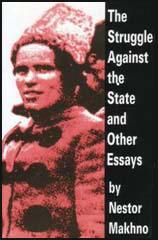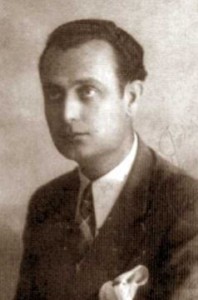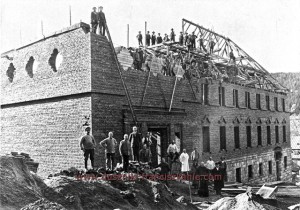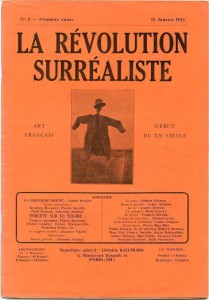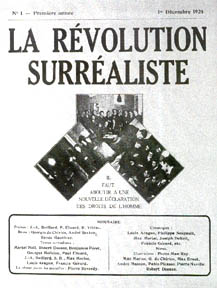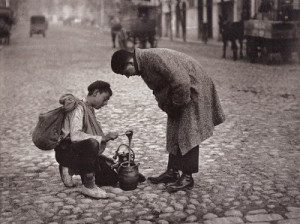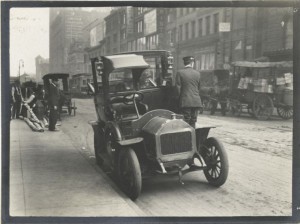Tag Archives: 1925
ANARCHISM AND OUR TIMES
Nestor Makhno (1925)
Anarchism is not merely a doctrine that deals with the social aspect of human life, in the narrow meaning with which the term is invested in political dictionaries and, at meetings, by our propagandist speakers: anarchism is also the study of human life in general.
Continue reading ANARCHISM AND OUR TIMES
Biografía de Carlos Soriano Águila (1905-1980), ferroviario y anarquista
El 14 de mayo de 1980 muere en Granada (Andalucía, España) el anarquista y anarcosindicalista Carlos Soriano Águila. Había nacido el 2 de abril de 1905 en Palenciana (Córdoba, Andalucía, España). Hijo de un comerciante socialista de clase media, cuando tenía 12 años dejó el pueblo y se fue a vivir con su tío Miguel, ferroviario y jefe de la estación de Las Mellizas (Álora, Málaga, Andalucía, España), viudo y sin hijos. En Alora conoció la que luego sería su primera esposa en 1930. Entre diciembre de 1921 y 1923 estudió en la Academia de Factores Ferroviarios y entre 1923 y 1925 trabajó como factor provisional en la Compañía de Ferrocarriles Andaluces en Écija (Sevilla, Andalucía, España), donde entró en contacto con el movimiento anarquista. Los servicios en Écija le sirvieron para hacer el servicio militar. A partir de 1925 pasó a trabajar en la estación de Bobadilla (Antequera, Málaga, Andalucía, España) y 1928 se afilió al Sindicato Autónomo de Factores (SAF), bastante influido por la Confederación Nacional del Trabajo (CNT). En 1928 el SAF ingresó en la CNT.
Continue reading Biografía de Carlos Soriano Águila (1905-1980), ferroviario y anarquista
Uccidere il tiranno
Nota introduttiva
Da solo, all’appuntamento col tiranno, per ucciderlo. Da solo contro Mussolini, contro il boia che aveva dato vita a un partito di miserabili e di sopraffattori che aveva imbrigliato il popolo italiano dopo avere ucciso o costretto all’esilio ogni opposizione. Da solo contro gli attendismi, contro le chiacchiere, contro gli accordi e le coalizioni nate nei corridoi della politica di sinistra. Da solo contro tutti, contro la prudenza e contro la ragione, contro l’orrore.
Io commercio in porci e troie
Luigi Adanti
Continue reading Io commercio in porci e troie
Workers’ Organizations
Luigi Galleani (1925)
The anarchist movement and the labor movement follow two parallel lines, and it has been geometrically proven that parallel lines never meet.
And since our good burghers, even those who pretend philanthropy redeems usury, will never stop being exploiters or give back what they have unjustly taken; the anarchists, including those who abhor violence and bloodshed, are compelled to conclude that the expropriation of the ruling class will have to be accomplished by the violent social revolution. And they dedicate themselves to this, seeking to prepare the proletariat with every means of education, propaganda and action at their disposal.
“Aprite le prigioni! Licenziate l’esercito
Revolution Is Not a Class Question
Meteor
The examination and consideration of certain demagogic attitudes, such as that involving the bolshevik slogan on the unity of the proletariat, have brought us, anarchists, again face to face with a question quite easy to resolve: the idea of classes and class struggle. We have not given any basic theoretical conclusions to this problem; we’ve done nothing more than put the marxist conception in doubt, criticizing its foundations and, perhaps, preparing the terrain for a few of our own that will someday seriously deal with the subject from a libertarian point of view.
Continue reading Revolution Is Not a Class Question
A Letter of Aron Baron from Biysk [1925]
April 12, 1925
Dear Mark,
It’s likely that I’m not without blame in the fact that there are such large gaps between my letters. In addition to a multitude of circumstances “beyond my control”, there are also circumstances which I can control; concerning which it is not convenient to speak of in a letter and the story of which I shall postpone until I meet with you in person. And this is how I imagine it to myself: you and I must get together to talk about everything and of course we won’t be satisfied with just conversations. I don’t know when our get-together will take place (possibly not for a few years), but it really must take place. Then, among other things, I shall explain some of the causes of my current lack of punctuality in correspondence. Until then, I’ll let it go.
Continue reading A Letter of Aron Baron from Biysk [1925]

